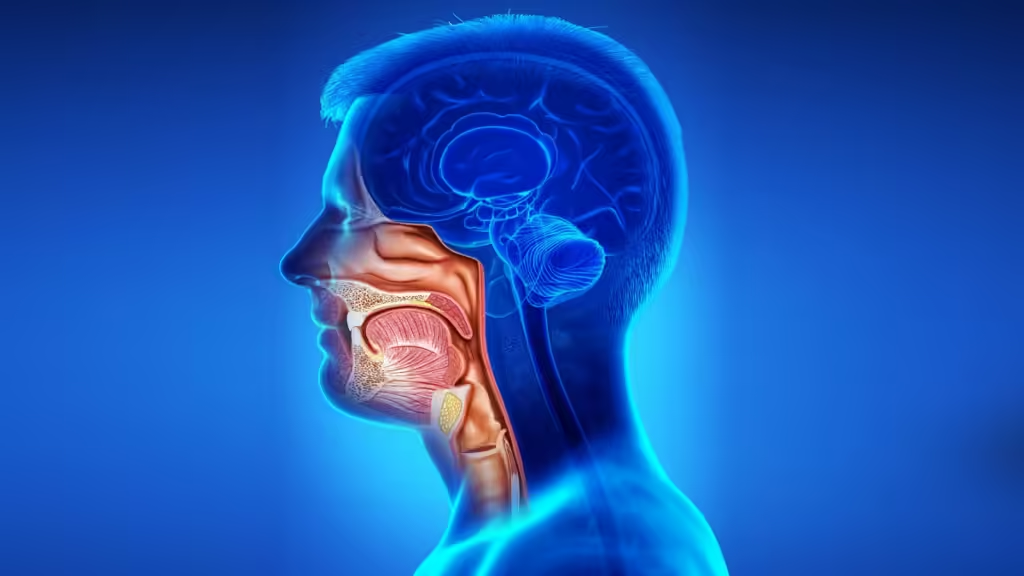Head and neck cancers

Head and neck cancers
Contact Us
Related Videos :
Frequently Asked Questions :
1. What are the risk factors for head and neck cancers?
Risk factors include tobacco and alcohol use, HPV infection, and poor oral hygiene.
2. How can I prevent head and neck cancers?
Prevention strategies include quitting smoking, reducing alcohol consumption, maintaining good oral hygiene, and regular dental check-ups.
3. Are head and neck cancers curable?
Many head and neck cancers are treatable, especially when detected early. Treatment success depends on the type and stage of cancer.
4. What should I expect during treatment?
Treatment experiences vary; patients may undergo surgery, radiation, or chemotherapy. Dr. Vaishya will guide you through each step.

About Head and Neck Cancers
Head and neck cancers encompass a range of malignancies that arise in the tissues and organs of the head and neck region, including the mouth, throat, nose, and sinuses. These cancers can significantly impact the quality of life, making early detection and effective treatment crucial. Dr. Sandeep Vaishya specializes in the diagnosis and treatment of these complex cancers, offering patients comprehensive care tailored to their unique needs.
Causes of Head and Neck Cancers
Several factors contribute to the development of head and neck cancers:
- Tobacco Use: Smoking and smokeless tobacco are major risk factors.
- Alcohol Consumption: Heavy alcohol use can increase cancer risk.
- Human Papillomavirus (HPV): Certain strains of HPV are linked to oropharyngeal cancers.
- Exposure to Carcinogens: Occupational exposure to substances like asbestos and formaldehyde can heighten risk.
- Poor Oral Hygiene: Dental issues and poor oral health can contribute to cancer development.
Understanding these causes is essential for prevention and early detection.
Types of Head and Neck Cancers
Head and neck cancers are classified into various types based on their origin:
- Oral Cavity Cancers: Affecting the lips, gums, tongue, and lining of the cheeks.
- Pharyngeal Cancers: Involving the throat, including the nasopharynx, oropharynx, and hypopharynx.
- Laryngeal Cancers: Involving the voice box (larynx).
- Nasal Cavity and Paranasal Sinus Cancers: Affecting the nasal passages and surrounding sinuses.
- Salivary Gland Cancers: Affecting the glands that produce saliva.
Symptoms of Head and Neck Cancers
Awareness of symptoms is vital for early diagnosis. Common symptoms include:
- Persistent sore throat or hoarseness
- Unexplained weight loss
- Difficulty swallowing
- A lump or mass in the neck or throat
- Changes in voice
- Mouth sores that do not heal
- Nasal obstruction or bleeding
Diagnosis of Head and Neck Cancers
Diagnosing head and neck cancers involves a combination of:
- Physical Examination: Assessment of the neck, throat, and oral cavity.
- Imaging Tests: CT scans, MRIs, and PET scans to visualize tumors.
- Biopsy: Taking a tissue sample for laboratory analysis.
- Endoscopy: A procedure to examine the throat and nasal passages using a thin, flexible tube.
Early and accurate diagnosis is essential for effective treatment planning.
Treatment of Head and Neck Cancers
Treatment options for head and neck cancers vary based on the type and stage of cancer, and may include:
- Surgery: Removal of tumors and surrounding tissue.
- Radiation Therapy: Targeting cancer cells with high-energy rays.
- Chemotherapy: Using drugs to kill cancer cells or inhibit their growth.
- Targeted Therapy: Focusing on specific molecular targets associated with cancer.
- Immunotherapy: Stimulating the body’s immune system to fight cancer.
Dr. Sandeep Vaishya employs a multidisciplinary approach to create personalized treatment plans.
Cost of Treatment and Stay in India
The cost of treatment for head and neck cancers in India varies based on the type of treatment, the hospital, and the patient’s condition. Generally, costs are lower compared to many Western countries. Patients should also consider additional expenses, such as hospital stay, travel, and post-treatment care.
Dr. Sandeep Vaishya’s clinic offers comprehensive packages for international patients, ensuring quality care at affordable rates.